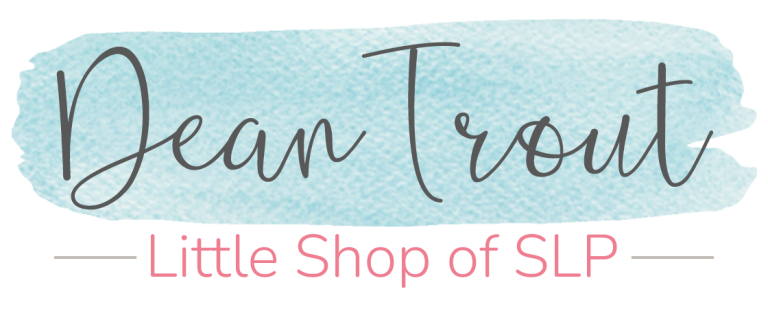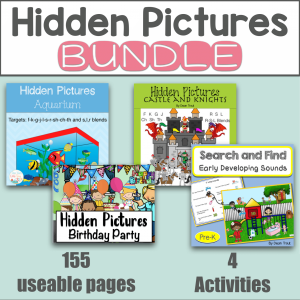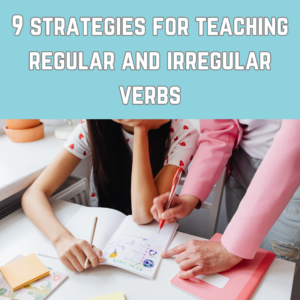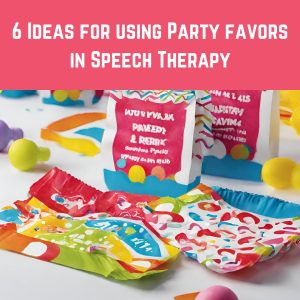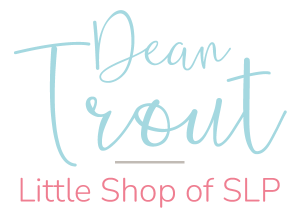I LOVE using games in therapy because they really engage kids. When kids are engaged they are learning! Games are the best attention getting tool you can use. However, there is a right way and a wrong way to do this.
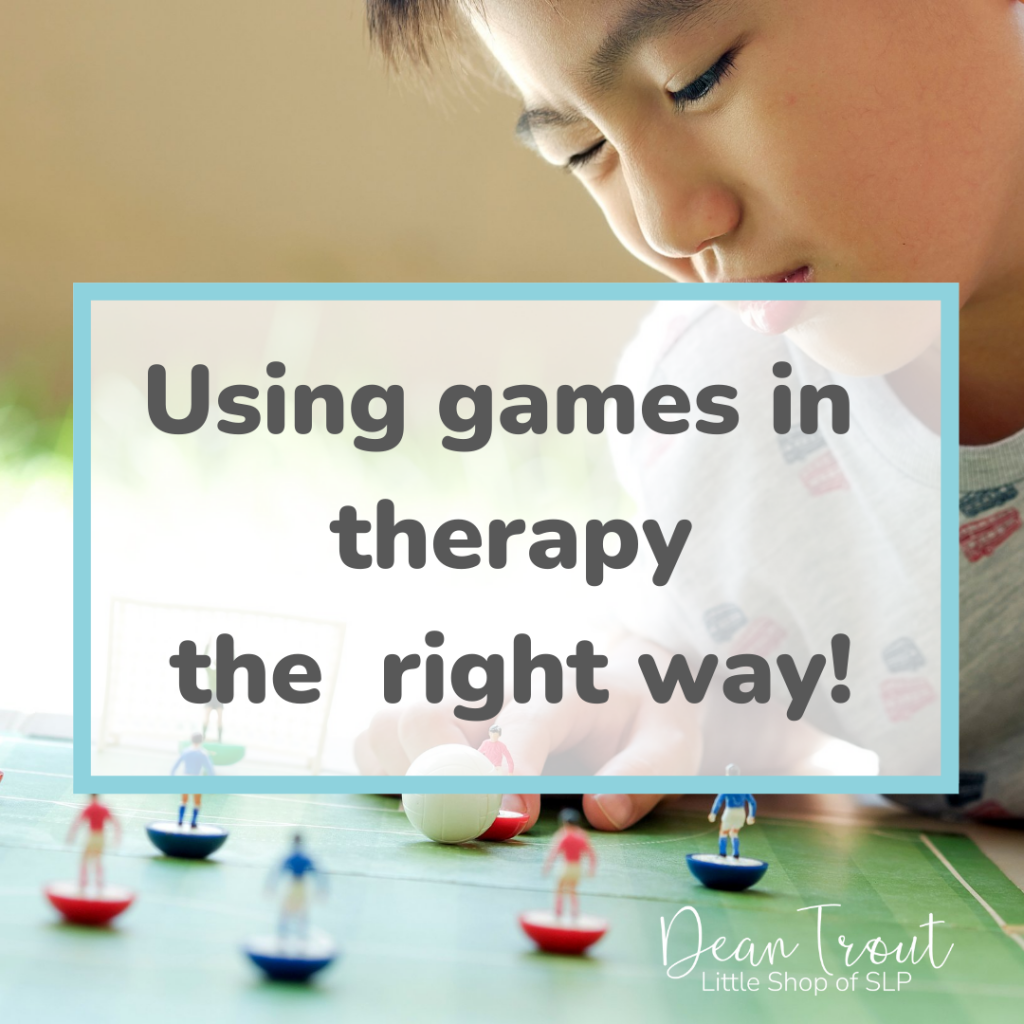
The wrong way to use games in therapy!
The wrong way is when the game is the focus of your therapy;
- You want to engage your kids NOT entertain them. You play a game that neither reinforces an IEP goal nor helps the child make progress on a goal. When you lose sight of moving that child toward his or her goal you have failed them (and yourself as a therapist). Your session should focus on helping that child reach that day’s objective.
2. The second point is you lose precious therapy time because the game takes too long to play!
The right way to use games in therapy!
The right way is when the game does the following;
- Takes no time to play.
2. Reinforces the skill you are working on.
3. Adds interest and engages the children.
It is that simple.
I create games and activities that meet those 3 standards I set. I have open-ended quick play games and games that focus on a skill.
Below are examples of games that are appropriate to use in therapy. They either focus on a specific speech or language skill or are open-ended.
These are hidden pictures. They focus on articulation drill and practice. The child is drilling on his or her sound as they hunt for specific pictures that have their sound 🙂 The whole game focuses on a skill.
The second type of game is quick play open-ended games. Seasonal and holiday related hold their interest as well as more generic themed games. These games don’t have a skill focus so you can add your target skill or goal for the day!
Open-ended quick play games can be used with picture cards, task cards, wordlists, worksheets or any stimulus. They can be used with just about any skill target. I love their versatility! I have lots of useful games in my TpT store and my Boom™Learning store!
I hope you have learned how to use games the right way in your therapy!
